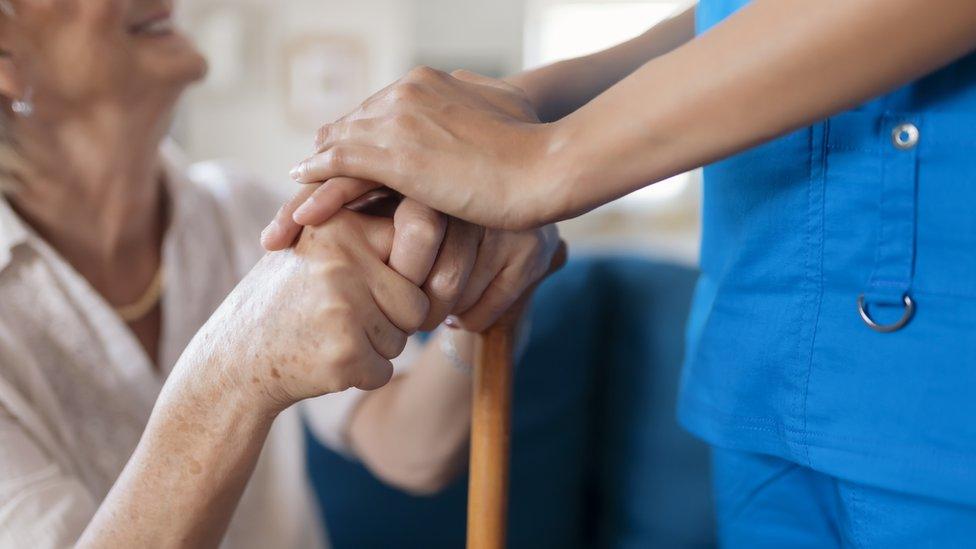Covid-19: 'It's been sad losing workers' says care home boss
- Published
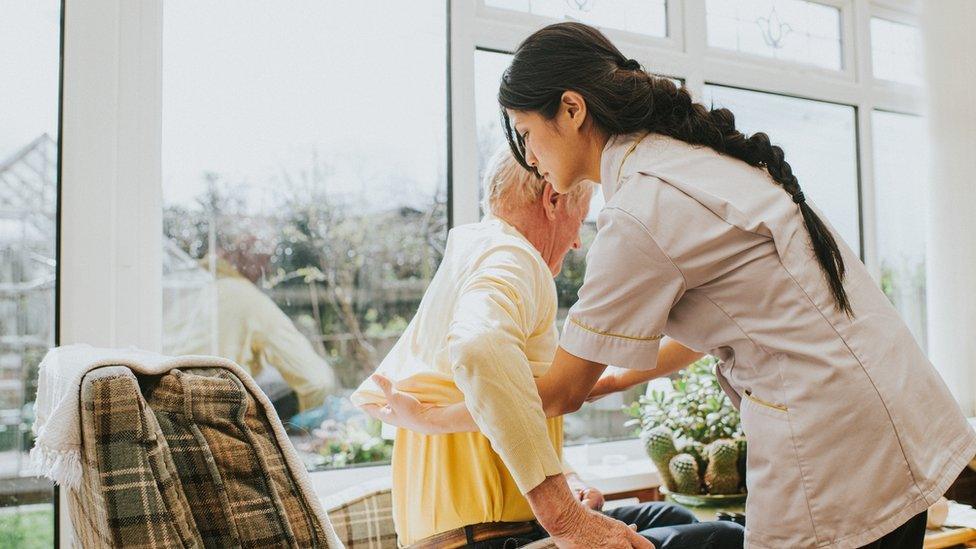
Care home operators and staff have been explaining what new rules on compulsory Covid-19 vaccinations mean for them
All care home staff in England must now be fully vaccinated against Covid, unless they have a medical exemption or there is an emergency. But what does this mean for homes, carers and residents?

'It's been sad losing workers'
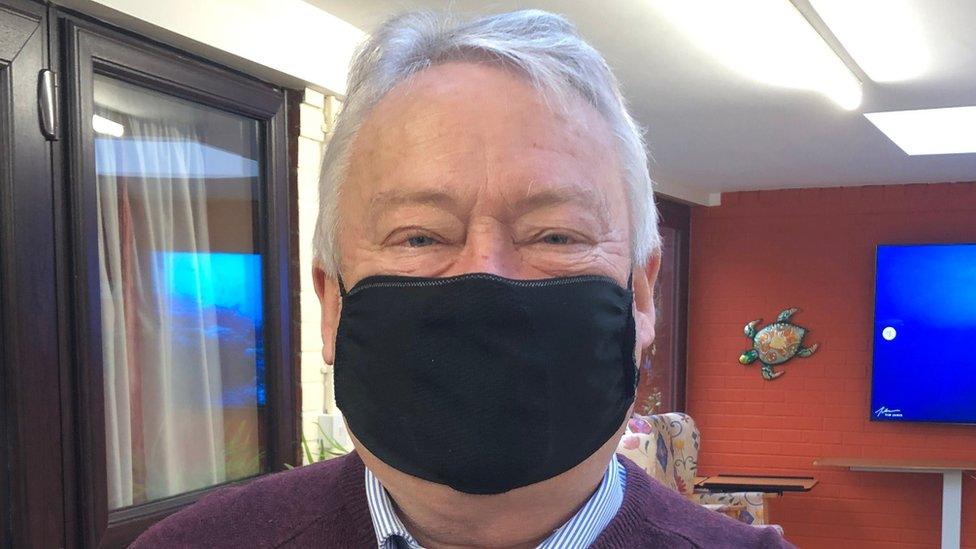
Steve Dorrington runs three care homes in Norfolk and says they are being more flexible than ever in a bid to recruit new workers
Covid vaccinations have become essential for staff at care homes in England.
Workers had been given 16 weeks' notice to get both jabs - and those who have not complied, and are not exempt, face being redeployed away from front-line care or potentially losing their jobs.
The new regulations mean care homes must refuse entry to any employees not double-jabbed.
Steve Dorrington has been running care homes for 43 years and has three sites in Dereham, Watton and Wells-next-the-Sea in Norfolk.
He has had some workers leave over the issue, but feels he could have lost more without careful handling.
"It's been very sad losing four people. Some have gone back to Romania and some have got jobs elsewhere, not in care," he says.
"[We've] spent a lot of time persuading and giving all the information they were asking for - and in the end we're not too bad."
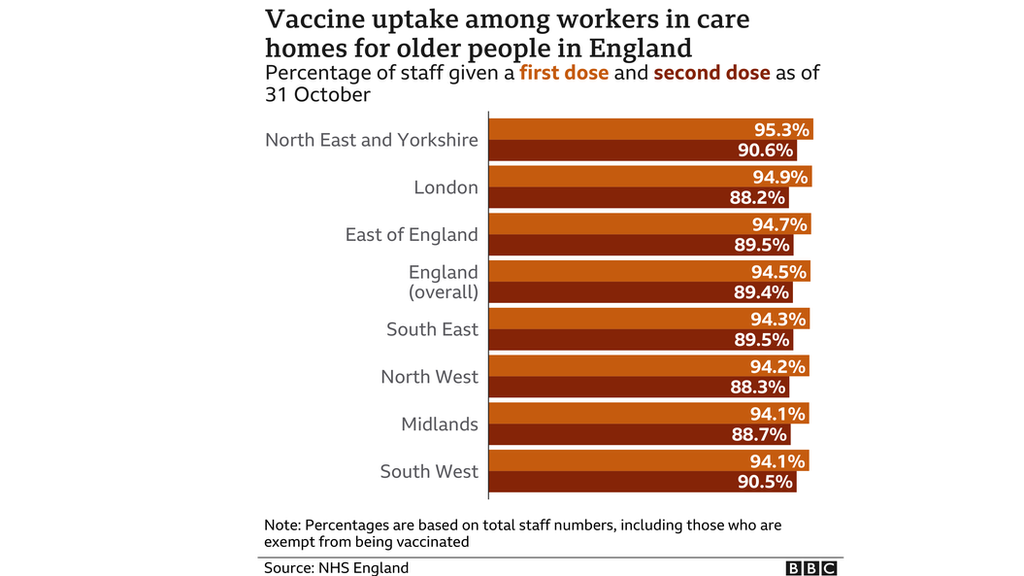
There are concerns the change will lead to a huge staff shortage, but the government says compulsory vaccinations in care homes will help protect workers and residents.
Norfolk County Council says about 350 care home staff are currently leaving across the county, but that just 3% of carers are unvaccinated.
Mr Dorrington says the new measure has been introduced at a time when the industry is already struggling to recruit workers and the overall job landscape has changed.
"We're working very flexibly and around people's family circumstances, trying to reduce childcare costs, helping youngsters who can't drive by picking them up, perhaps," he says.
"The whole ethos is around them, rather than us, otherwise you won't get any staff.
"In this day and age, working from home has substantially changed how everyone thinks and we're happy to adapt."
Levelling the sector
The deadline has come just as it has been announced that all frontline NHS staff in England will need to be fully vaccinated, too.
Health Secretary Sajid Javid is due to give 103,000 unvaccinated workers until April to get both jabs.
Mr Dorrington feels that the move has levelled things up in the care sector.
"I'm pleased - I feel like we're part of the team again now because I felt excluded," he said.
"[We] felt it was unfair and didn't make sense if residents went to hospital or nurses came in to visit the residents - the same applies to everybody."
In the East of England, government figures released on 4 November showed 48,601 care home workers had received both vaccines out of a total of 54,288 workers, a total of 89.5%.
Corresponding data for residents, living in older adult care homes, revealed 35,508 people had been double-jabbed, which equates to 94.8%.
The figure for care workers is higher than in the general working-age population, where about 81% have had both doses.

'You had to be their family'
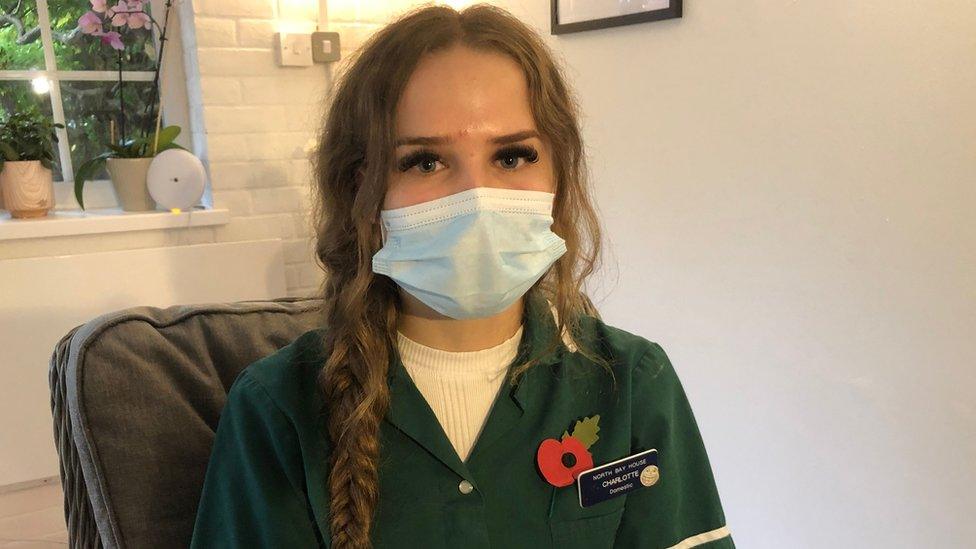
Domestic worker Charlotte Szomjas says she feels it is an "achievement" that her care home has managed to keep Covid out and all workers there have been vaccinated
Some government ministers had previously expressed fears about the low take-up of the vaccine among some care home staff, leading to the new regulations.
But Charlotte Szomjas, a domestic worker at North Bay House in Lowestoft, Suffolk, says she didn't think twice about getting jabbed.
She says it was important so she could see her "precious" grandparents.
Similarly, she says it was just as vital to keep the residents safe at her workplace, which has not had any Covid cases.
"I think it's an achievement that no-one has had [Covid] and we've all been vaccinated," says Ms Szomjas.
"I think NHS staff and care workers should be made to have the vaccination, but if you're not working with vulnerable people it should honestly be your own decision."
The government has said compulsory vaccinations in care homes and hospitals would save lives.
While it has been reported that there has been a strong take-up of vaccines among England's care home residents, some have either not been able to have the jabs or have compromised immune systems.
In October, nearly 14,000 residents were reported to have died of Covid-19 since the start of the year.
"Working during the pandemic it has been difficult and challenging... but I think it's been quite rewarding," says Ms Szomjas.
"I've kind of enjoyed working through the pandemic, keeping myself busy - coming in and seeing the residents.
"Because they weren't allowed to see their family, you had to go in their rooms and be like their family."

'I am amazingly proud of all of my staff'
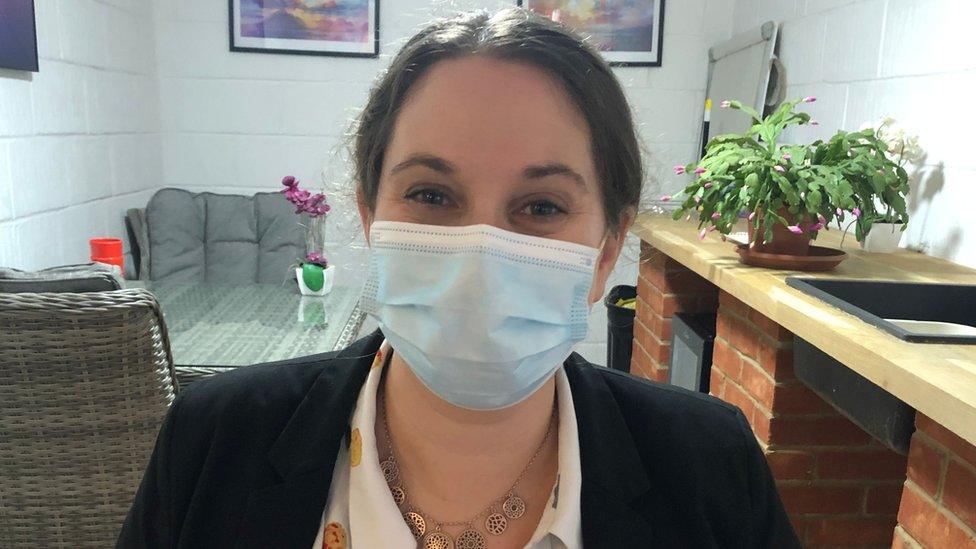
Care home manager Rachel Thompson says she hopes compulsory vaccinations may lead to people viewing care as a safer industry to work in
Care organisations have warned compulsory vaccinations could cause difficulties in a sector already struggling to recruit.
But Rachel Thompson, manager of North Bay House, thinks they could prove a boon to the industry.
"I hope because of things like this more carers will come to the sector and more people will take care as an option," says Ms Thompson.
"Vaccination protects us - because the sector that you're working in is effectively better protected, you are better protected as a carer.
"I would hope people considering care [as a career] would take it as a good thing that we're all vaccinated."
The new mandate will also apply to tradespeople and volunteers entering homes.
Ms Thompson thinks the new regulations are "sensible... when we're caring for vulnerable people".
Suffolk County Council says 98% of all care staff have received one dose, with 95% double-jabbed.
It said care providers had plans in place to deal with the potential impact caused by the "very small minority of their staff who have opted not to get the vaccine".
Ms Thompson says she had been "blessed" that 100% of her staff have adhered to the mandatory vaccinations.
"They've actually wanted to get vaccinated, they've wanted to protect people and they want to help protect the residents in the home," she says.
"They've all understood how important it is - that vaccination can slow the spread of the disease and it can make the symptoms so much better.
"I am amazingly proud of all of my staff."

Find BBC News: East of England on Facebook, Instagram and Twitter. If you have a story suggestion email eastofenglandnews@bbc.co.uk
- Published10 November 2021
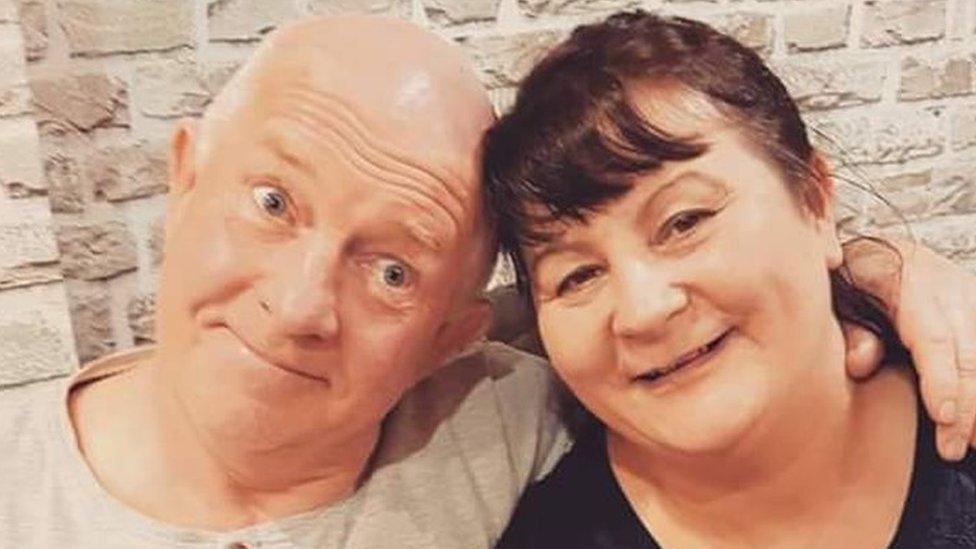
- Published10 November 2021
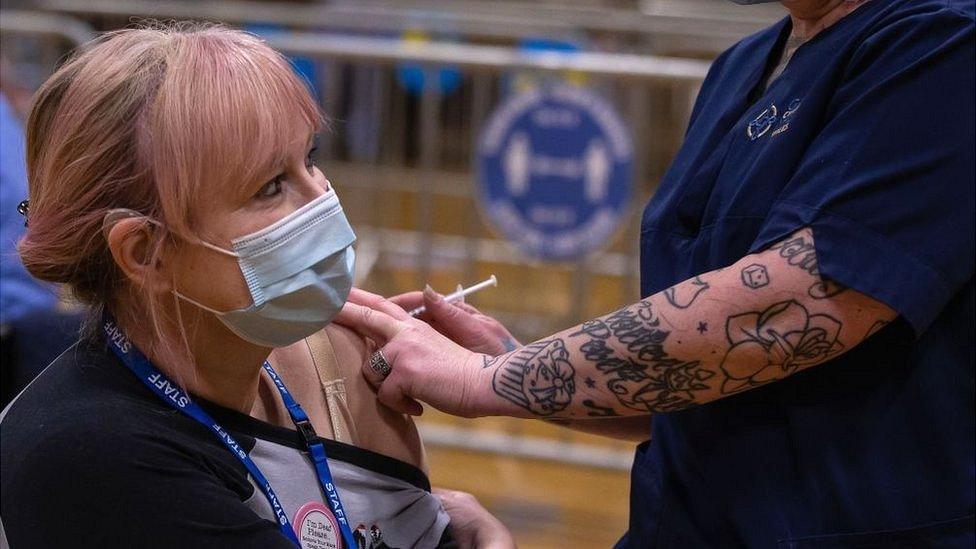
- Published9 November 2021
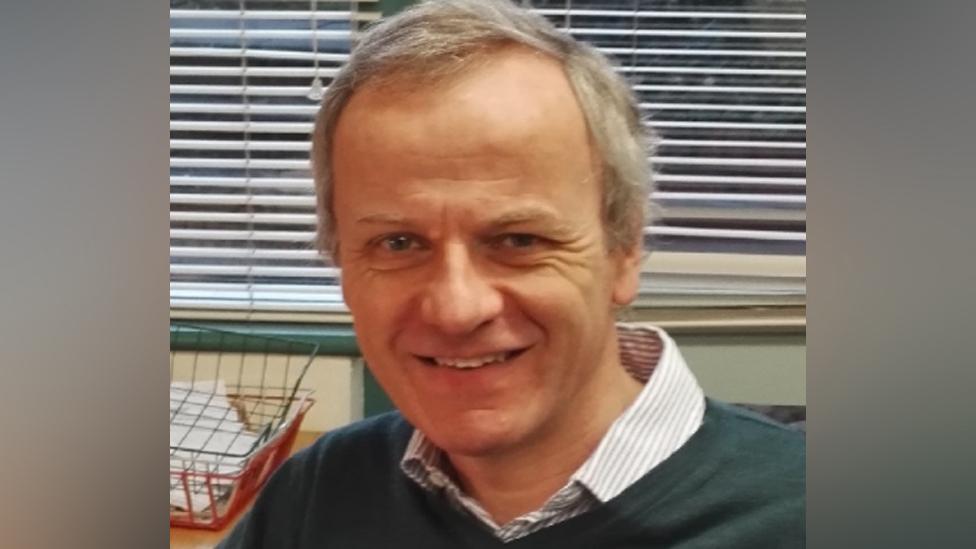
- Published28 October 2021
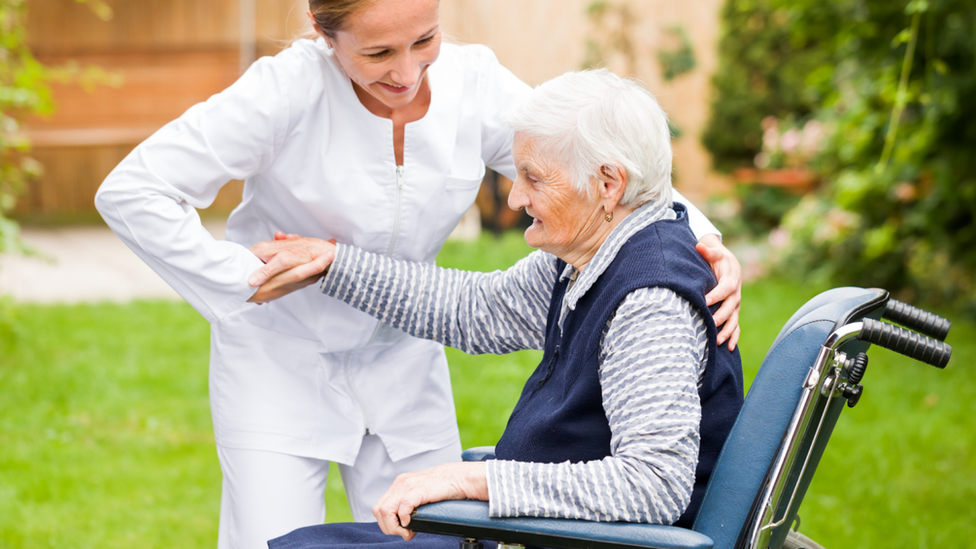
- Published13 July 2021
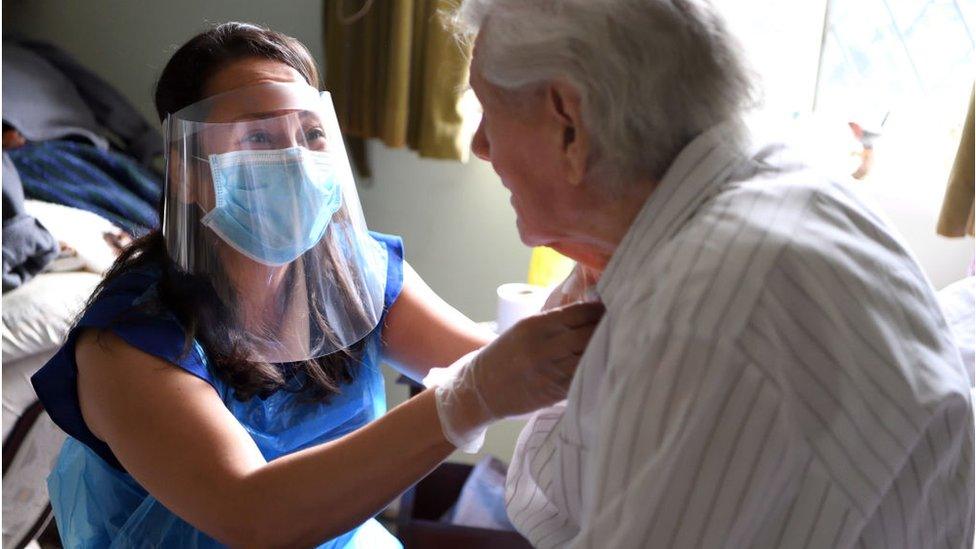
- Published16 June 2021
